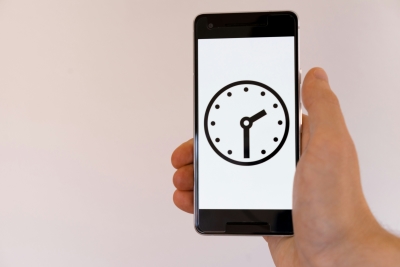
Predictive texting: The need for speed
We live in technical times, where texting continues to be a very popular method of communication, both with our personal and business contacts. Predictive text seems to be everywhere and on seemingly every device we interact with. The technology is great- when it works well. We often have to type only a few letters to generate the word we want, speeding up the input process. The expediency of a software which predicts what we are going to write, as well as types most of our words is great convenience.
However, when it fails, predictive text blunders can at best be comical and slightly embarrassing and at worst, they can not only be frustrating and time-consuming, but also lead to miscommunication.
Moreover, it's also possible that becoming accustomed to using predictive text software may have some, unconsidered, albeit, far-reaching consequences, especially in younger individuals.
Although many of us do appreciate the speed and convenience of autocorrect and predictive texting, younger individuals, particularly adolescents and young adults could be experiencing significant negative cognitive ramifications. With increasingly smart language technology, such as predictive text and advanced grammar checkers, the software does all the work for us and has essentially created situations where our brain is less inclined to actually pay attention to what we are writing. According to a recent study, published in the Journal of Computer-Mediated Communication, predictive text messaging changes the way children's brains work and generally makes them more prone to making mistakes while writing.[1]
Researchers claim that predictive texting trains the brain of young adults to work quickly, without paying too much attention to accuracy. This 'need for speed' approach creates a serious risk of being carried over to the professional world where precision, accuracy, in addition to paying attention to detail, especially when it comes to business communication, is crucial.
Individuals, who grew up having to learn to focus on details while writing, are more likely to meet the high demands of attention required by their professions. However, there is increased concern that younger technology users, whose brains are still developing, will learn to take the quick and lazy approach, which long-term can result in paying less attention to detail and making more careless mistakes. Indeed, this is backed up by research which shows higher rates of spelling errors among younger users who communicate via text more frequently, sometimes even exclusively.
Furthermore, predictive text may be causing a similar deficit not only in young people's linguistic abilities, but in their general performance at their various tasks and activities.
One of the most dangerous outcomes may be, that this type of activity, later on in life could cause them to be prone to impulsive and thoughtless behavior in everyday life.
A study by researcher, Dr. Michael Abramson, published in the Journal of Bioelectromagnetics, found that texting technology, predictive texting, in particular, had the potential of changing the way the brain of younger individuals functioned by instilling in them the ability to act before thoroughly rethinking a response.[2]
At every turn, science is churning out innovative technologies which claim to make our lives easier and us, as people, more efficient and productive. However, such technologies often have unforeseen, negative consequences, which we should take into consideration. By consistently communicating via text, in a way that favors speed over accuracy, we may be internalizing a general habit towards being quick, but inaccurate. Such an approach can eventually harm academic performance early on and, when used habitually over a long period of time, and eventually, our performance and future work prospects.
Related stories

Befriending the Watch. Interview with Krzysztof Matowski
In my profession, time is a key parameter. Hence, my love for watches: it grows more from an awareness of the passage of time than from a need to control it

Behind the screen: How much screen time is too much for adults
How does excessive screen time impact adults? Learn how to embrace digital minimalism for a healthier, more balanced life.

Why do Navy SEALs use box breathing?
Box breathing is a technique used by Navy SEALs, athletes, and others in high-stress situations to help manage stress and maintain focus.
If you'd like to receive the best stories from our blog, keep up to date with our progress and get notified about our product releases and special discounts.